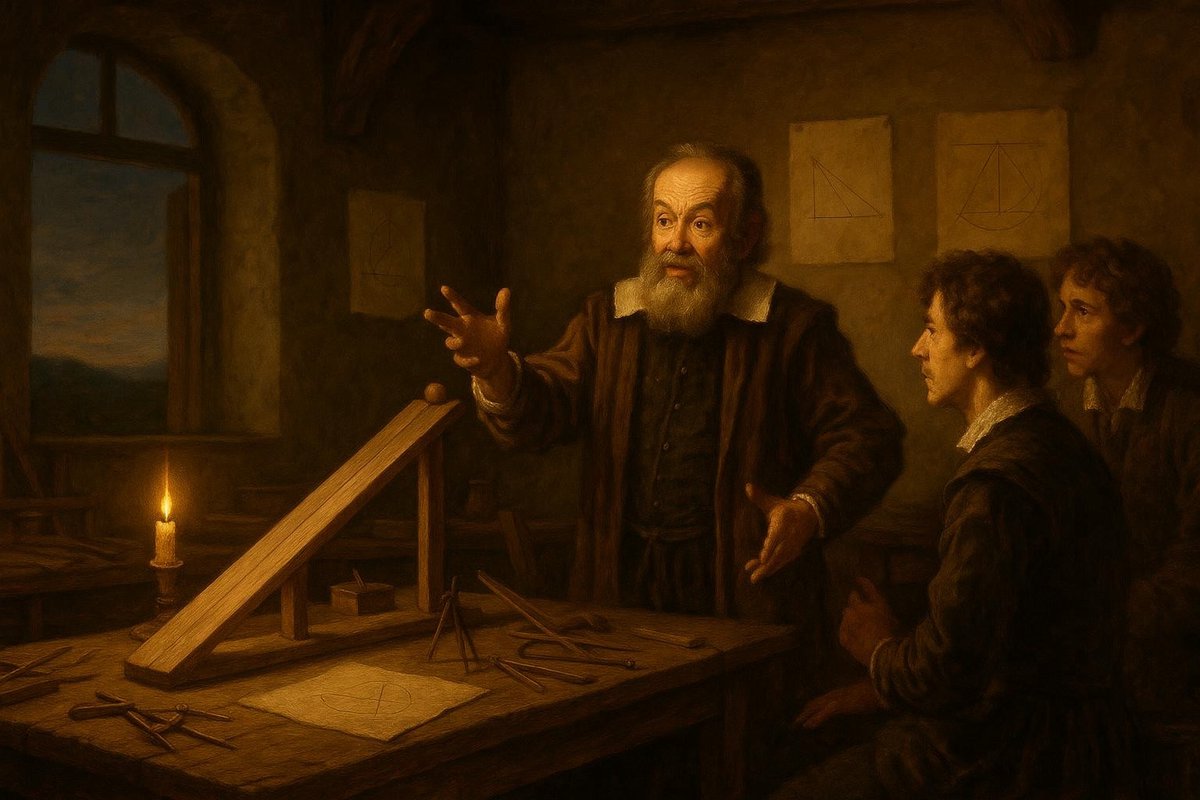
As the evening sun set over Pisa, a young Galileo Galilei pondered gravity’s mysteries that others took for granted. His revolutionary thinking led to the invention of an experiment that would forever change the world of science. Galileo’s Inclined Plane was not just an experiment; it was a beacon of innovation, precision, and curiosity that illuminated the path to modern physics.
Early Influences: Curiosity in a Time of Discovery
Galileo was born in 1564 during the Renaissance, a time when Europe was awakening to new ideas and discoveries. He grew up in a world driven by curiosity and exploration, which undoubtedly fueled his passion for science.
- The Renaissance: A period of rebirth and intellectual advancement.
- Galileo’s father, Vincenzo, was a musician and scholar, emphasizing the importance of observation and precision.
- University of Pisa: Here, Galileo was introduced to mathematics and the philosophy of Aristotle.
Galileo’s early fascination with mathematics and physics led him to question the established norms. Many people believed in Aristotle’s teachings, but Galileo was driven by a relentless curiosity to explore further. He asked, what if the ancient philosophers were wrong about motion and gravity?
Mental Models: Seeing the World in New Ways
Galileo’s mental models were rooted in observation and experimentation, in contrast to the purely theoretical approaches of his predecessors.
- He used the concept of controlled experiments, focusing on variables like angle and distance.
- The inclined plane allowed for the slowing down of motion, making detailed observation possible.
- Galileo meticulously recorded timing and distance, a methodical approach akin to modern science.
Interestingly, Galileo’s methods allowed for repeatability and verification, fundamental principles of the scientific method today. His work demonstrated that experimentation could reveal truths unseen by mere observation or theory.
Challenges & Resilience: Overcoming Skepticism
Galileo’s innovative ideas met with significant resistance from the academic institutions of his time.
- Academic skepticism: Scholars were deeply entrenched in Aristotelian physics.
- Technological limitations: Precise timing was difficult without modern tools.
- Social dynamics: Galileo needed to navigate the politics of the scientific community.
Despite these challenges, Galileo’s resilience shone through. He used creative methods like water clocks to measure time intervals, proving his theories with empirical evidence. His determination and ingenuity inspired future generations to pursue science with an open and critical mind.
Legacy: A New Era of Scientific Inquiry
Galileo’s Inclined Plane experiment was more than a demonstration; it was a breakthrough that paved the way for Newton and others.
- His findings laid the groundwork for the laws of motion and gravity.
- The experiment exemplified the power of empirical evidence over philosophical speculation.
- Galileo popularized a scientific approach that valued precision and repeatability.
No wonder Galileo is often called the ‘father of modern science.’ His legacy lives on in schools, universities, and research labs worldwide, where the spirit of inquiry and the pursuit of precision continue to inspire.
Galileo’s mindset of skepticism and methodical inquiry remains crucial today. It reminds us of the importance of challenging established ideas and underscores the value of observation and experimentation in understanding the natural world.
Fuel Someone Else’s Curiosity
Inspired by Galileo’s story? Share this article with a friend or discuss it over coffee. Dive into a conversation about how curiosity and precision can lead to groundbreaking discoveries. Let’s keep the spirit of inquiry alive and see where it takes us!

Leave a Reply